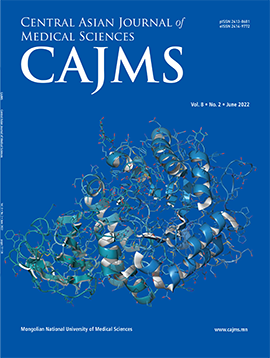Study of Attitudes towards Interprofessional Education, Team Works and Their Barriers – Based on Survey from Mongolian National University of Medical Sciences Faculties
DOI:
https://doi.org/10.24079/cajms.2018.09.008Keywords:
Interdisciplinary Research, Global Health, Faculty, Attitude, Interprofessional CommunicationAbstract
Objectives: Purpose of this study was to determine the current attitudes of the faculty who are responsible for training of future healthcare professionals. Methods: A descriptive, cross-sectional design was used to survey participants from a convenience sample of faculty at a large public health sciences university located the capital city of Mongolia. The colleges represented were medicine, dentistry, nursing, pharmacy, public health, biomedicine and traditional medicine. Attitudes towards the various aspects of interprofessional education and learning were measured using surveys. Results: The attitude towards interprofessional health care teams was determined by the responses to 14 statements. The score for interprofessional health care teams for all respondents was 4.1±0.10 (mean±SD). The attitude towards interprofessional education was determined by summing the responses to 15 statements and the score for all respondents was 3.83±0.10. The attitude towards interprofessional learning was determined by summing the responses to 13 statements, yielding a score of 3.41±0.10 for all respondents. The barriers identified included problems with schedule/calendar, classroom size, turf battles, faculty attitudes, rigid curricula and lack of administrative support, faculty incentives, perceived value, students’ acceptance, and financial resources. Conclusion: Analysis of the perceived barriers to IPE revealed a number of similarities in Mongolia compared to Japan and the need to organize IPE training and to make IPE curriculum.
Downloads
289
Downloads
Published
How to Cite
Issue
Section
License
Copyright (c) 2018 Mongolian National University of Medical Sciences

This work is licensed under a Creative Commons Attribution-NonCommercial 4.0 International License.




